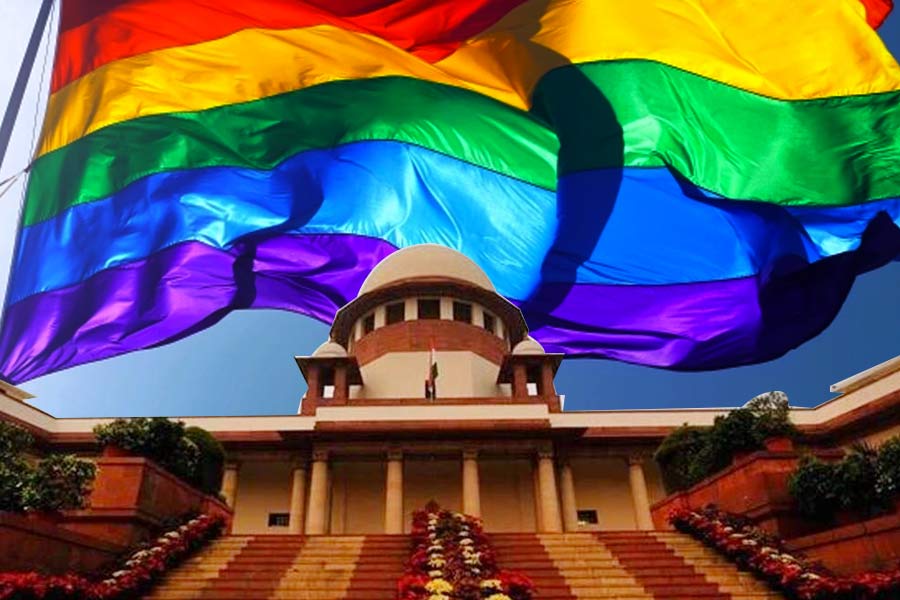A five-judge constitution bench of the Supreme Court, by a majority of 3:2, on Tuesday upheld one of the adoption regulations prohibiting unmarried and queer couples from adopting children.
However, the bench, unanimously, refused to legalise same-sex marriage under the Special Marriage Act and held that there is no fundamental right to marry. They also said it is for Parliament to effect changes in the law for validating such unions.
The constitution bench comprising Chief Justice of India D Y Chandrachud and Justices Sanjay Kishan Kaul, S Ravindra Bhat, Hima Kohli and PS Narasimha delivered four separate verdicts and they agreed on some legal issues and differed on others.
The top court, by a majority of 3:2, refused the right of adoption to queer couples.
While Chief Justice Chandrachud and Justice Kaul, in their two separate and concurring verdicts, held one of the guidelines of the Central Adoption Resource Authority (CARA), prohibiting unmarried and queer couples from adopting, as unconstitutional and illegal.
Regulation 5(3) of CARA says "no child shall be given in adoption to a couple unless they have at least two years of stable marital relationship except in the cases of relative or step-parent adoption".
"There was no material on record to prove that only a married heterosexual couple can provide stability to a child," the CJI said while pronouncing the verdict.
"The regulation 5(3) indirectly discriminates against atypical unions. A queer person can adopt only in an individual capacity. This has the effect of reinforcing the discrimination against queer community.
"Law cannot assume that only heterosexual couples can be good parents. This would amount to discrimination. So the adoption regulations are violative of the Constitution for discrimination against queer couples," the CJI said.
However, three other judges -- Justice Bhat, Justice Kohli and Justice Narasimha -- differed with the CJI and upheld the CARA regulations.
This is not to say that unmarried or non-heterosexual couples cannot be good parents, Justice Bhat said, adding that the State, as the guardian, has to explore all areas and ensure that the benefits reach such children who are in need of stable homes.
The CJI said that provisions of the Special Marriage Act cannot be struck down and words cannot be read into it to allow same-sex marriages.
The majority opinion of Justice Bhat, Justice Kohli and Justice Narasimha said there is no unqualified right to marriage and the entitlement to civil unions can be only through enacted laws.
Queer persons are not prohibited from celebrating their love for each other, but they have no right to claim recognition.
Except for the headline, this story has not been edited by The Telegraph Online staff and has been published from a syndicated feed.










